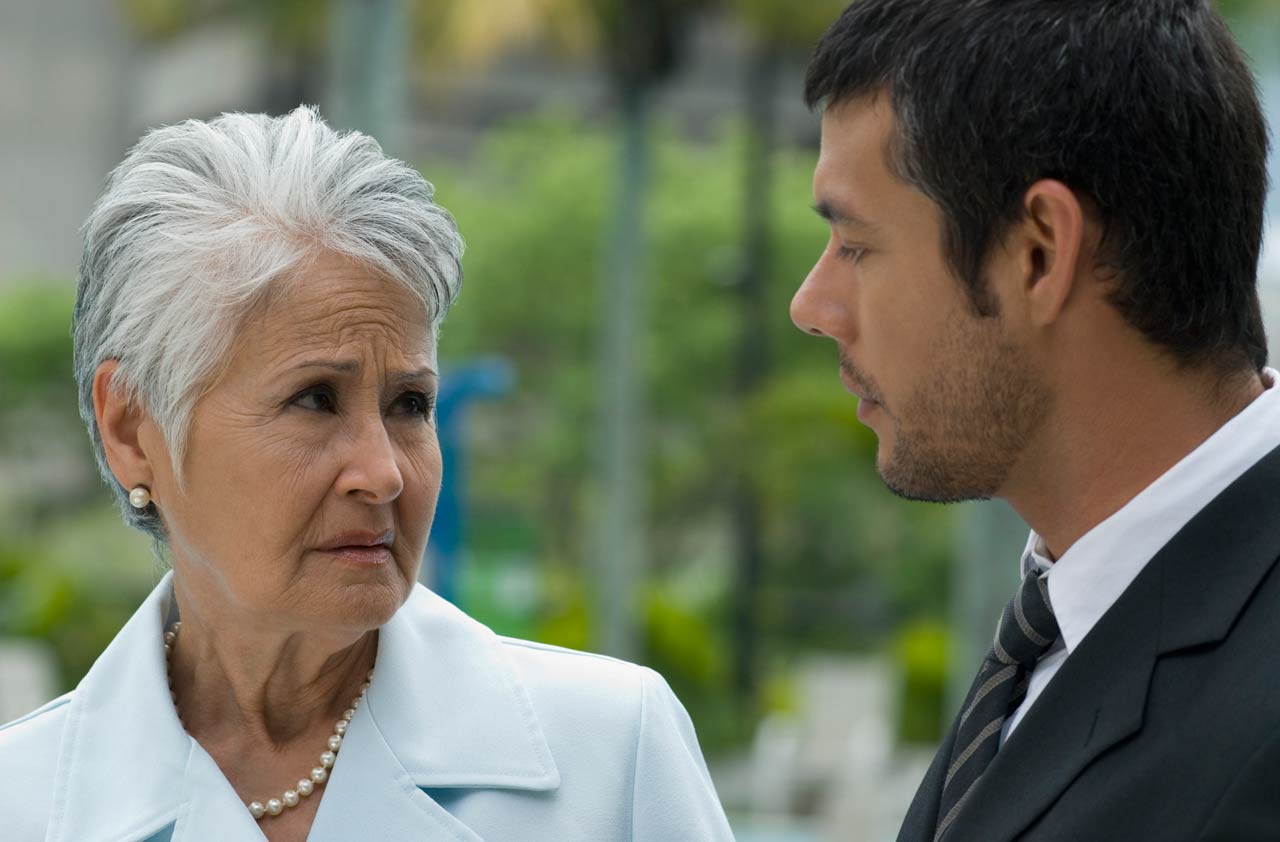12 Different Times When You Should Update Your Will
Some situations where you may need to change your will should be obvious to most people. But others just may surprise you.


Profit and prosper with the best of Kiplinger's advice on investing, taxes, retirement, personal finance and much more. Delivered daily. Enter your email in the box and click Sign Me Up.
You are now subscribed
Your newsletter sign-up was successful
Want to add more newsletters?

Delivered daily
Kiplinger Today
Profit and prosper with the best of Kiplinger's advice on investing, taxes, retirement, personal finance and much more delivered daily. Smart money moves start here.

Sent five days a week
Kiplinger A Step Ahead
Get practical help to make better financial decisions in your everyday life, from spending to savings on top deals.

Delivered daily
Kiplinger Closing Bell
Get today's biggest financial and investing headlines delivered to your inbox every day the U.S. stock market is open.

Sent twice a week
Kiplinger Adviser Intel
Financial pros across the country share best practices and fresh tactics to preserve and grow your wealth.

Delivered weekly
Kiplinger Tax Tips
Trim your federal and state tax bills with practical tax-planning and tax-cutting strategies.

Sent twice a week
Kiplinger Retirement Tips
Your twice-a-week guide to planning and enjoying a financially secure and richly rewarding retirement

Sent bimonthly.
Kiplinger Adviser Angle
Insights for advisers, wealth managers and other financial professionals.

Sent twice a week
Kiplinger Investing Weekly
Your twice-a-week roundup of promising stocks, funds, companies and industries you should consider, ones you should avoid, and why.

Sent weekly for six weeks
Kiplinger Invest for Retirement
Your step-by-step six-part series on how to invest for retirement, from devising a successful strategy to exactly which investments to choose.
I can’t tell you how often I meet with clients who tell me they have been meaning to update their wills for years but never got around to doing it. Their numbers are only surpassed by the people who didn’t think they needed to update their legal documents, and their omissions become clear once they passed away and their family discovers the will is woefully inappropriate.
Some wills really do pass the test of time. I have seen a 50+-year-old will that was spot-on. The deceased individual stated they wanted their spouse to receive their assets, then their children equally if their spouse passed away, and named the same people as executors of their estate. The drafting attorney could have patted himself on the back that he foresaw exactly how things would be, but the skeptic could say he got lucky that what he drafted happened to play out in this family’s life without any hitches.
It is also important to realize that it isn’t merely “why” you are updating your will, but “when” you are updating that can make all the difference. Acting too late (or too early) may mean your changes are no longer appropriate or even immediately invalidated. Here are 12 times you should consider changing your will:

1. You are having your first child.
This one should be a no-brainer, and the birth of a first child is usually when people create their first will. The focus on this will should be naming your choice of guardian for your child, and who will serve as trustee for any trust created for that child by the will. The will should be flexible enough to accommodate the possible birth of future children.
Execute this will before the child is born: While you can still execute a will after your child is born, you likely have a hundred other things to do, and doing them with two hours less sleep. Get the will done before you give birth.

2. You are thinking about divorce.
This one, too, should be obvious — but the timing might be surprising: Do it ASAP … before you file for divorce. Remember that your spouse has marital rights to a portion of your estate if you die without completing the divorce proceeding. And once you file for divorce you often can’t change your will until the divorce is finalized.
Executing the will before you commence the divorce ensures that your spouse will not receive all of your money if you die before the divorce is complete.

3. You have gotten divorced.
Now that you are divorced, your former spouse no longer has any rights to your estate (unless they do as one of the terms of the divorce). And even if you don’t change your will, most states have laws that invalidate any distributive provisions to your ex-spouse in that old will. So … who gets the money now? Make sure to update your will as soon as permissible so your new beneficiaries are clearly identified. In addition, you may be changing your name to its pre-marital persona.

4. Your child gets married.
An older parent is a wiser parent, and you may know more about your future ex-son-in-law and future ex-daughter-in-law than your child knows. But your current will likely addresses issues that applied when your child was an infant, meaning it does not address your child’s possible divorce. You may be able to mitigate the lack of a prenuptial agreement by creating trusts in your will and including post-nuptial requirements before you child can receive any estate distributions.
Create this will immediately after your child gets married, since (a) the marriage may never happen, and (b) if you do happen to die before the marriage, anything you leave your child is not considered marital assets in most states.

5. Your beneficiary develops creditor or substance abuse problems.
Some wills leave money directly to a beneficiary. If that beneficiary is addicted to opioids or prescription drugs, or if the beneficiary has large creditor problems you should update your will to include trusts that allow a third party to only distribute funds under the correct circumstances. Create this will as soon as you suspect there is a problem, since a trustee will be able to assess these problems with more certainty at a later date.

6. Your named executors or beneficiaries die.
If your estate plan named individual people to manage your estate or receive any remaining funds and those people are no longer alive you may have to update your will. Your old will may name contingency plans or leave undistributed funds to the deceased person’s children, but you may want to re-evaluate this decision.

7. Your young family member becomes a responsible adult.
Your old will likely named your spouse or parent as your first executor, then perhaps your sibling or a friend. Now everyone is three or more decades older (or deceased), and your younger family member may be up to the task of handling your estate affairs more expediently than your past choices.
Don’t rush to this decision: While some older individuals don’t have too many good choices over younger trusted friends or family members, making a rushed choice may affect several people.

8. New legislation is passed.
Every few years Congress passes legislation that can royally derail your estate plan. Estate tax laws have been changing every few years, and recent laws — including the “Tax Cuts and Jobs Act” and the “SECURE Act" — have updated how Inherited IRAs, same-sex marriage and family business succession planning work.
Make sure to ask your attorney every few years if there have been any new laws that are relevant to your estate planning.

9. You come into a windfall of money.
If you finally get that huge payday from the scratch-off ticket you bought, or inherit money, consider updating your will so you can ensure proper tax planning. For example, you may want to start gifting money to younger family members’ 529 college savings plans, or create a donor advised fund to both shield some money from taxes and leave a nice legacy to a cause you believe in. Also, you may want to reconsider when and how much money you are leaving to certain people or charities.

10. You can’t find your original will.
Wills are the product of hundreds of years of Anglo-American jurisprudence. Think parchment and barristers wearing powder and wigs. A formal, original will matters, and photocopies are very difficult to validate. If you can’t find your will, or if you agreed to have your attorney hold onto your original will and now don’t want to deal with him or her, make sure you replace that will with a new, original one that explicitly states it invalidated all prior wills. Do this as soon as possible.

11. You buy property in another country or move to another country.
Plenty of countries have treaties with the United States allowing for reciprocity of wills: Your will drafted in French when you were stationed in France is likely valid in the United States. But transferring property in one country may be delayed if the will must be probated in the other country first. Consider having a different will for each country you own property in.

12. Your family and friends become enemies.
Few things can derail your planning more than parties who don’t get along. The problems with animosity between parties in your will are compounded when one party is your family and the other is your friend. Only your nearest family members can easily fight your will, since your “next-of-kin” are required parties to your probate (even if you fully disinherit them), while your friends have no default rights.
If you think your family will try to take a legal right hook to your best friend’s bequest in your will, consider adding a No Contest Clause that will serve to disinherit the aggressive family member if he tries to attack your friend.
Written by Daniel A. Timins, a Trusts and Estates and Elder Law attorney, and a Certified Financial Planner®. He works with clients to preserve family wealth, decrease taxes, maximize utilization of government programs, and minimize creditor claims against family members. He practices law in New York, where he teaches both the public and other attorneys about Wills, Trusts, Medicaid, Probate and strategies to maintain assets and personal dignity as people age.
Profit and prosper with the best of Kiplinger's advice on investing, taxes, retirement, personal finance and much more. Delivered daily. Enter your email in the box and click Sign Me Up.

Daniel A. Timins is an estate planning and elder law attorney, as well as a Certified Financial Planner®. He specializes in Estate Planning, Surrogate’s Court proceedings, Real Estate Law, Commercial Law and Medicaid Planning. He is a graduate of Pace Law School.
-
 Dow Adds 1,206 Points to Top 50,000: Stock Market Today
Dow Adds 1,206 Points to Top 50,000: Stock Market TodayThe S&P 500 and Nasdaq also had strong finishes to a volatile week, with beaten-down tech stocks outperforming.
-
 Ask the Tax Editor: Federal Income Tax Deductions
Ask the Tax Editor: Federal Income Tax DeductionsAsk the Editor In this week's Ask the Editor Q&A, Joy Taylor answers questions on federal income tax deductions
-
 States With No-Fault Car Insurance Laws (and How No-Fault Car Insurance Works)
States With No-Fault Car Insurance Laws (and How No-Fault Car Insurance Works)A breakdown of the confusing rules around no-fault car insurance in every state where it exists.
-
 States That Tax Social Security Benefits in 2026
States That Tax Social Security Benefits in 2026Retirement Tax Not all retirees who live in states that tax Social Security benefits have to pay state income taxes. Will your benefits be taxed?
-
 What to Do With Your Tax Refund: 6 Ways to Bring Growth
What to Do With Your Tax Refund: 6 Ways to Bring GrowthUse your 2024 tax refund to boost short-term or long-term financial goals by putting it in one of these six places.
-
 What Does Medicare Not Cover? Eight Things You Should Know
What Does Medicare Not Cover? Eight Things You Should KnowMedicare Part A and Part B leave gaps in your healthcare coverage. But Medicare Advantage has problems, too.
-
 12 Great Places to Retire in the Midwest
12 Great Places to Retire in the MidwestPlaces to live Here are our retirement picks in the 12 midwestern states.
-
 15 Cheapest Small Towns to Live In
15 Cheapest Small Towns to Live InThe cheapest small towns might not be for everyone, but their charms can make them the best places to live for plenty of folks.
-
 15 Reasons You'll Regret an RV in Retirement
15 Reasons You'll Regret an RV in RetirementMaking Your Money Last Here's why you might regret an RV in retirement. RV-savvy retirees talk about the downsides of spending retirement in a motorhome, travel trailer, fifth wheel, or other recreational vehicle.
-
 The 24 Cheapest Places To Retire in the US
The 24 Cheapest Places To Retire in the USWhen you're trying to balance a fixed income with an enjoyable retirement, the cost of living is a crucial factor to consider. Is your city the best?
-
 The Six Best Places to Retire in New England
The Six Best Places to Retire in New Englandplaces to live Thinking about a move to New England for retirement? Here are the best places to land for quality of life, affordability and other criteria.
